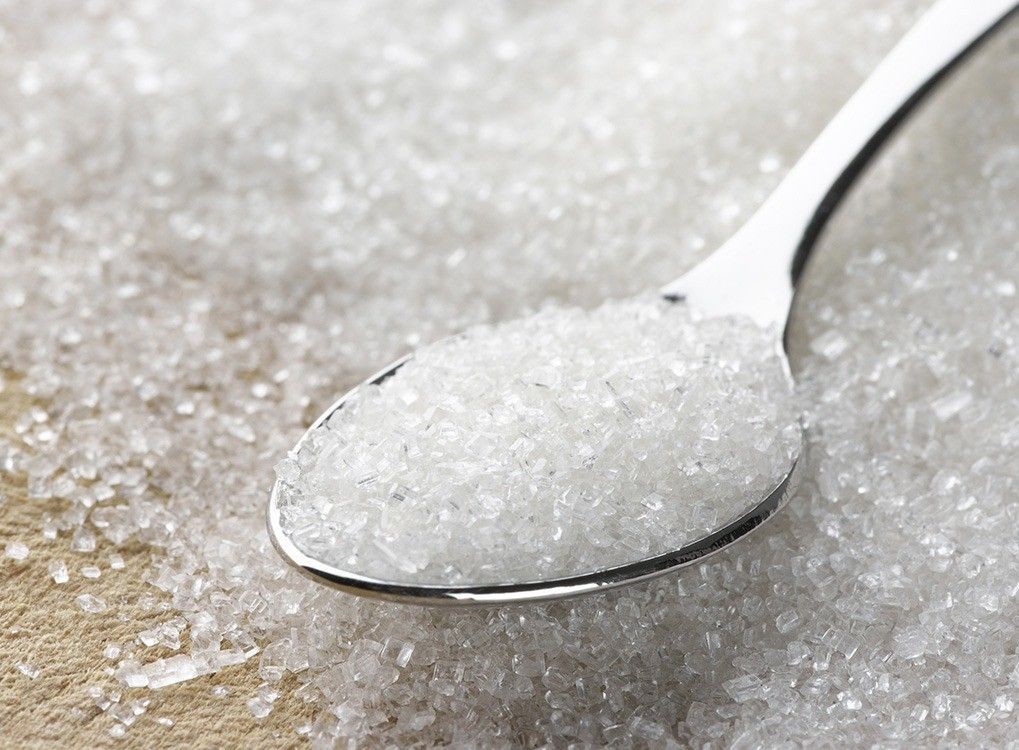Nutritionists Warn About This Breakfast Habit That Slows Metabolism

A healthy metabolism impacts every aspect of wellness, from digestion and energy levels to preventing disease and maintaining a healthy weight. What we eat also affects metabolism, with certain nutrients—like protein—”boost” metabolism, and others help cause it to slow down. “If your metabolism is high (or fast), you will burn more calories at rest and during activity,” says Harvard Health. “A high metabolism means you’ll need to take in more calories to maintain your weight. That’s one reason why some people can eat more than others without gaining weight. A person with a low (or slow) metabolism will burn fewer calories at rest and during activity, and therefore has to eat less to avoid becoming overweight.” Here is one breakfast habit that could be undermining your metabolic health and slowing down weight loss.
RELATED: The No. 1 Food to Boost Your Metabolism Instantly.
Sugar and Metabolism

Starting the day with sugary drinks and foods is not good for your health, fitness, or metabolism. “Fructose fools your metabolism by turning off your body’s appetite-control system,” says Mount Sinai Medical Center. “It fails to stimulate insulin, which in turn fails to suppress ghrelin, or ‘the hunger hormone,’ which then fails to stimulate leptin or ‘the satiety hormone.’ This causes you to eat more and develop insulin resistance. Eating too much sugar causes a barrage of symptoms known as classic metabolic syndrome. These include weight gain, abdominal obesity, decreased HDL and increased LDL, elevated blood sugar, elevated triglycerides, and high blood pressure.”
Sugar and Cancer

Sugar is linked to a host of negative and concerning healthy conditions. “Excess sugar consumption has been associated with cirrhosis, neuropathy, kidney disease, general inflammation, and cancer,” endocrinologist Rekha B. Kumar, MD tells NewYork-Presbyterian/Weill Cornell Medical Center Health Matters. “In fact, there are several cancer links, such as breast, colon, and endometrial, that are associated with obesity, which might indirectly feed off of sugar in the diet; some tumor cells can use sugar and insulin as fuel to grow.”
Yes, That Includes Juice

It’s better to have oranges in a smoothie than drink orange juice. “Whole (100%) juices, which contain only the sugars from the extracted fruit or vegetable are healthier, but you don’t get the benefits of fiber and other natural ingredients as you do in whole fruit,” says Harvard Health.
RELATED: Nutritionists Warn Against This Popular Diet Trend.
Sugar and Aging

Not only does sugar slow down metabolism, but it speeds up the aging process. “One could argue that eating too much sugar leads to aging due to increased stress on cells,” says Dr. Kumar. “This is not the typical outward aging, such as getting gray hair and wrinkles, but it takes cells a lot of work to metabolize sugar and this can cause ‘oxidative stress,’ leading to free radicals, which are implicated in the aging process.”
Boost Your Metabolism

If you want to boost your metabolism, focus on quality protein. “Protein is a key nutrient that can significantly boost metabolism,” Craig L. Floch, MD, Associate Medical Director of Bariatric Surgery, tells Nuvance Health. “When you consume protein, your body works harder to break it down and digest it, compared to fats and carbohydrates. This process, known as the thermic effect of food, can boost your metabolic rate and help burn more calories.”
Natural Sugar

It’s best to enjoy sugar in the form of whole fruits, such as berries, where you also get the benefits of fiber and antioxidants. “Refined sugars provide calories, but they lack vitamins, minerals, and fiber,” says MSMC. “Such simple sugars are often called ’empty calories’ and can lead to weight gain. Also, many processed and refined foods, such as white flour, sugar, and white rice, lack B vitamins and other important nutrients unless they are marked ‘enriched.’ It is healthiest to eat carbohydrates, vitamins, and other nutrients in the most natural form possible, for example, from fruit instead of table sugar.”